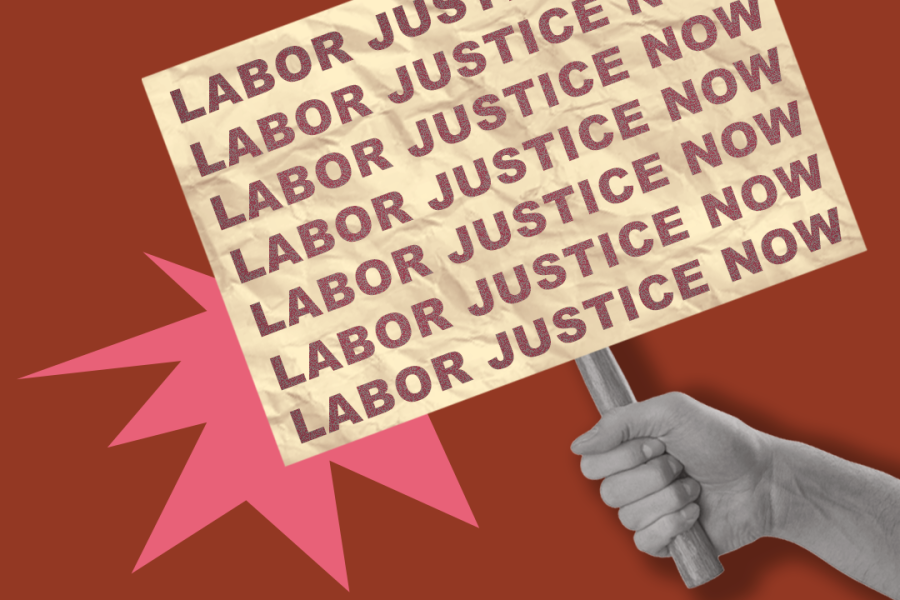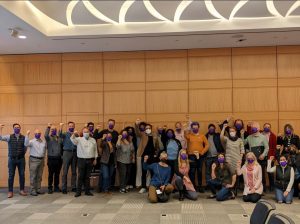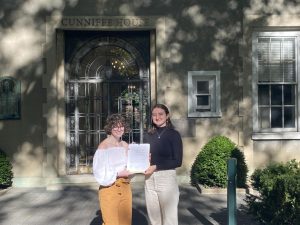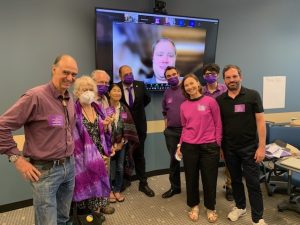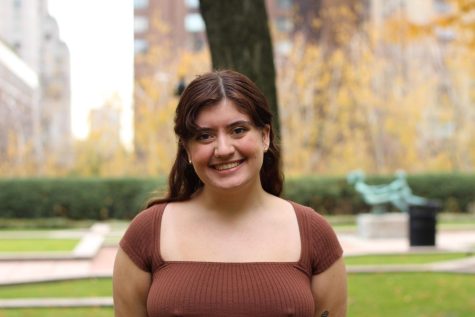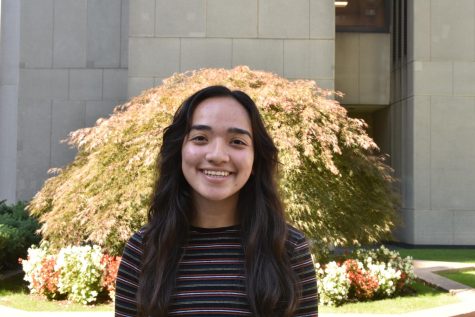Fordham Faculty (and Students) United
Fordham faculty won a fair contract — but the fight for labor justice isn’t over
January 20, 2023
There was one word on everyone’s mind during 2022 — and no, Merriam-Webster, it wasn’t “gaslighting.” Rather, the word that defined the past year’s political and social discourse was “union.”
From Starbucks baristas organizing at record speed to Staten Island Amazon workers forming the first union in the company’s history, workers across the country have mobilized at historic rates to win higher wages and better benefits. Before being elected mayor in 2013, U.S. Labor Secretary Marty Walsh spent his career as a union organizer in Boston, and his tenure in the Biden administration has coincided with the highest level of labor union activity in decades.
Nevertheless, the United States is far from a workers’ paradise. On Dec. 2, ahead of an impending rail worker strike, the federal government intervened in a contract dispute between rail owners and the workers’ union, forcing rail workers to accept the existing agreement and ignoring their demand for paid sick leave. By implementing this “deal” through federal intervention, Congress and the Biden administration prevented the union from exercising its right to strike.
The National Labor Relations Act (NLRA) of 1935 protects workers’ “right to self-organization, to form, join, or assist labor organizations, to bargain collectively through representatives of their own choosing, and to engage in other concerted activities for the purpose of collective bargaining or other mutual aid or protection.” More specifically, the NLRA states that nothing may “interfere with or impede or diminish in any way the right to strike or to affect the limitations or qualifications on that right.”
In other words, all workers have the legal right, under United States federal law, to self-organize and, if necessary, strike in order to collectively bargain.
In other words, all workers have the legal right, under United States federal law, to self-organize and, if necessary, strike in order to collectively bargain.
Recently, faculty and graduate student unions across New York City have exercised this right in order to win concessions from their universities — many of whom have, over the past several years, relied more heavily on adjunct and nontenure-track faculty while paying them lower wages on average than their tenure-track counterparts.
Fordham Faculty United (FFU), the union for part-time and adjunct faculty at Fordham University which was formed in 2017, spent much of 2022 in unsuccessful negotiations with the university for their next collective bargaining agreement (CBA), culminating in the union members voting to authorize a strike which was set to begin on Jan. 30, 2023.
Luckily, on Jan. 18, just 12 days before the strike was set to begin, the union announced that the university had accepted their proposal and they had entered a tentative agreement (TA), pending approval by union members. This TA contains three key provisions which were top priorities for FFU throughout the negotiation process, as outlined in an Aug. 16 open letter from FFU.
First, the TA increases wages for faculty members to address the cost of living which has risen across the country, particularly in New York, since the first CBA was signed in 2018. According to the Bureau of Labor Statistics, the cost of living in the New York-Newark-Jersey City area has risen by 6% in 2022 alone.
Second, the TA provides health benefits for part-time faculty members. Under the previous CBA, nontenure-track faculty members did not receive employer contributions to their health care plans, meaning professors were often forced to balance excessive teaching commitments to multiple schools, thus limiting the time and capacity that they were able to devote to Fordham. Although FFU members were able to purchase the university’s health care plan at full price, the lack of an employer contribution made the plan, in many cases, prohibitively expensive. Given the United States’ status as the only industrialized country that does not have universal health care, employers have historically offered as a “benefit” what should be a basic right — and, luckily, Fordham has finally agreed to meet this need for FFU members.
Third, the TA makes progress toward pay parity across schools within the university. The open letter explained that faculty in Fordham’s Graduate School of Social Service (GSSS) and Graduate School of Religion and Religious Education earn, on average, between $2,100 and $2,400 less per course than their counterparts in other schools. The letter from FFU highlighted that in addition to baselessly devaluing certain fields, this disparity “perpetuates systemic gender and racial inequalities, for at Fordham, as elsewhere, women predominate in the social work and education fields, and the GSSS faculty serves the most racially diverse group of students at the university.” By beginning to rectify these disparities, the TA will ensure that faculty receive equal pay for equal work.
On Dec. 26, following months of stalled negotiations, FFU members voted to authorize a strike beginning on Jan. 30. On their website at the time, FFU highlighted that the initial strike petition, which was signed by the majority of members in October and November, led the administration to make its largest movement since negotiations began in March; in other words, the union’s vote to strike was, in part, a last-ditch (and, ultimately, successful) effort to encourage the university to meet its demands.
Students ought to celebrate the achievements of FFU and its members — and, hopefully, this situation will inspire students to engage more deeply with labor issues across their lives.
In a Jan. 17 Instagram post, FFU explained that “Fordham administration can end the strike at any time by offering us new proposals that meet our demands,” a claim which was proven true despite initial budgetary concerns raised by the university on Jan. 18, as the university avoided the strike by accepting the union’s proposal. Evidently, the university found a way to “stretch our compensation budget,” which University President Tania Tetlow, J.D., previously implied to be impossible in a letter to the Fordham community on Nov. 18 which was shared by FFU on Instagram.
Over the holidays, I faced a barrage of questions from eager friends and family members about my college experience. And, unsurprisingly, the question of “How do you like your professors?” was significantly more common than “How do you like the administration?”
Fordham professors, the majority of whom are adjunct or nontenure-track, make Fordham what it is; it is high time that they’re paid fairly and equitably. Students ought to celebrate the achievements of FFU and its members — and, hopefully, this situation will inspire students to engage more deeply with labor issues across their lives. Support unionized businesses, and don’t cross picket lines. If the success of FFU has taught us anything, it should be that workers can only achieve what we’re owed — that’s right, “we” — if we organize as a collective.
One thing is clear: Organized labor works.

